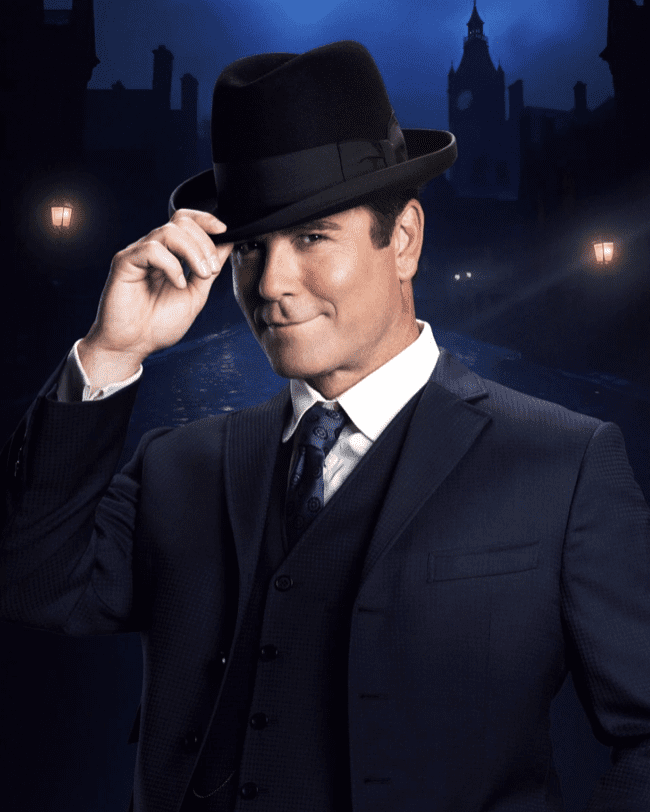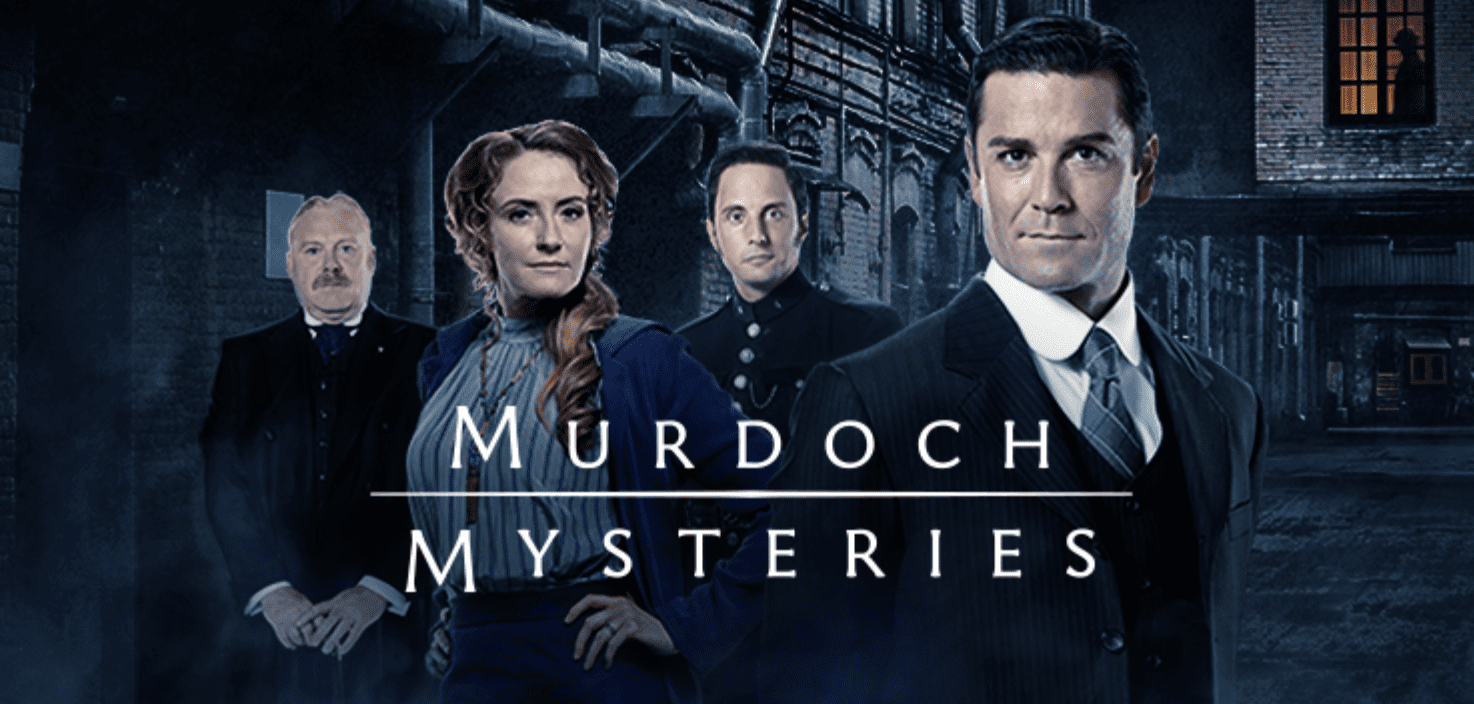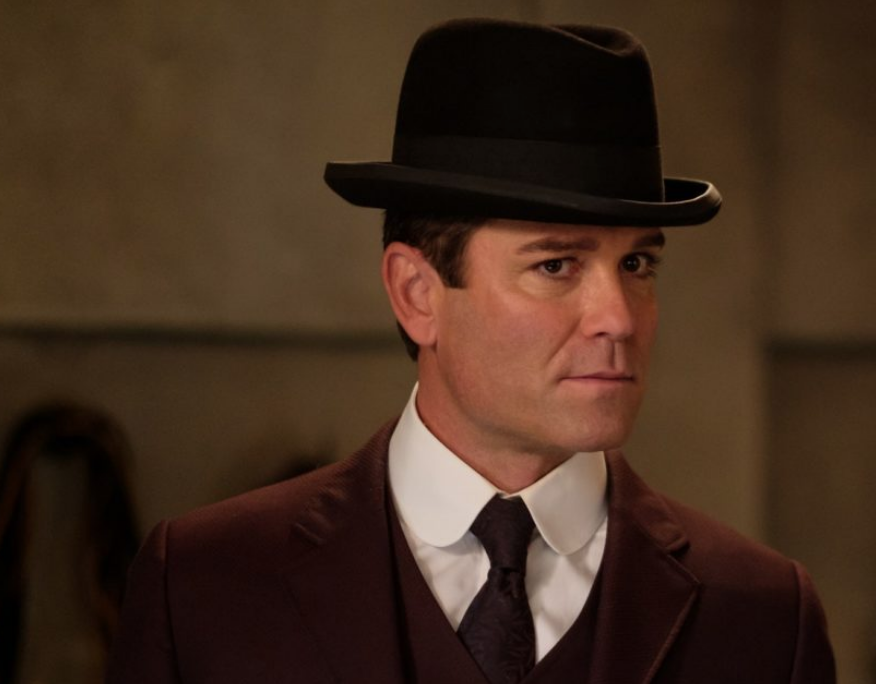Murdoch Mysteries, Canada’s longest-running one-hour drama series, aired its 300th episode last week. While it’s a rare feat that deserves to be acknowledged, the show’s success really isn’t a mystery.
I’ve examined this TV series on many occasions, and have long believed it’s one of the finest ever produced in this country. It’s helped “expose more viewers to Canadian and world history,” as I wrote in a Dec. 27, 2023 Loonie Politics column. “It’s subtly championed intellectual study within the guise of entertainment value. It’s also served as a springboard for those clamouring to know more about politics, science, local landmarks and the Victorian era. It is, therefore, a unique example of a thinking man’s show.”
Let’s search for clues to help explain why this series has passed the 300-episode mark.
Murdoch Mysteries is based on British-Canadian writer Maureen Jennings’s Detective William Murdoch stories, including Except the Dying, Under the Dragon’s Tail and Let Darkness Bury the Dead. (Murdoch’s son, Jack, would follow in his father’s footsteps and is a titular character in Jennings’s 2019 book, Heat Wave: A Paradise Cafe Mystery.) Her fictional detective was inspired by John Wilson Murray, who became Ontario’s first government detective in 1875 and reportedly helped solve hundreds of crimes.
Detective Murdoch was born on July 2, 1863. He came from a strict Roman Catholic family who had lived in Nova Scotia. He held those religious traditions and values close to his heart as he found his way to Toronto, a predominantly Protestant city. He worked for the Toronto Constabulary at Station House No. 4, was a Polymath with a photographic memory and used forensic skills and ingenious inventions to solve a never-ending slew of mysteries and crimes. His techniques of fingerprinting, blood testing, surveillance and trace evidence actually existed at that time but were rarely used.
The book series was turned into three made-for-TV movies for Bravo Canada in 2004, Murder 19C: The Detective Murdoch Mysteries. Shaftesbury Films then created a weekly, hour-long drama series which ran on Citytv between 2008-2012. It was dropped after the fifth season, but was quickly picked up by CBC and has been there ever since.
Murdoch Mysteries has been watched by over 1.4 million viewers per episode starting in 2014, and has reportedly maintained this consistent audience. It’s been carried in Britain, France, Greece, Australia, China, Finland and Brazil. It’s also appearing on U.S.-based networks Ovation and Acorn TV, the latter of which has released each season on DVD/Blu-ray.
Acorn and RLJ Entertainment have been kind enough to send me screeners of Murdoch Mysteries over the years. (My thanks to Alexandra Quilici of AMCNetworks.) I’ve just gone through Season 16 and 17. The quality of each set has always been of a high standard. The presentation was user friendly. The episodes were witty, intriguing, thought-provoking – and, above all, fun!
The sixteenth season features guest appearances by astronaut Chris Hadfield during an episode about Halley’s Comet, and Olympic gold medal sprinter Andre De Grasse as a shopkeeper. Jennings wrote one episode, which she has infrequently done during the run of the series. There are also portrayals of three famous authors (Rudyard Kipling, Lucy Maud Montgomery, Edith Wharton), two renown motorcycle engineers (William S. Harley and Arthur Davidson), inventor Alexander Graham Bell and Prime Minister Sir Wilfrid Laurier.
The seventeenth season includes cameos by author Margaret Atwood, comedian Colin Mochrie, actress Kristen Thomson and actors R. H. Thomson and Colm Feore. There are portrayals of Canadian artist Emily Carr as well as Prime Minister Robert Borden. Another writing credit for Jennings is achieved. As well, a full-blown musical breaks out in the appropriately named episode “Why is Everybody Singing?” that has to be seen to be believed!
When a TV series can handle everything from cold-blooded murders to song-and-dance routines with the greatest of ease and precision, it’s not hard to figure out why it’s been a success.
Canada’s oldest TV series is Hockey Night in Canada. It was first broadcast on CNR Radio in 1931, and became a staple on CBC TV in 1952. CBC News: The National started as a five-minute national news bulletin in 1952, and shifted to something closer to its current format in 1954. This Hour Has 22 Minutes has just reached its 32nd season in existence. Mr. Dressup ran for 29 seasons and had over 4,000 episodes, while The Friendly Giant ran for 27 seasons and had over 3,000 episodes.
Heartland, which had previously been Canada’s longest-running drama series – it debuted on Oct, 14, 2007, just ahead of Murdoch Mysteries’s Jan. 20, 2008 launch – is only at 269 episodes due a lighter schedule in recent years. The Beachcombers, the longest-running comedy-drama series, aired for a total of 19 seasons and 387 episodes. Other popular Canadian TV series had shorter runs, including: Street Legal (9 seasons, 132 episodes), The Kids in the Hall (6 seasons, 109 episodes), Corner Gas (6 seasons, 107 episodes), Schitt’s Creek (6 seasons, 80 episodes + 1 special), Kim’s Convenience (5 seasons, 65 episodes) and Seeing Things (6 seasons, 43 episodes).
When you put it all together, Murdoch Mysteries is in a class of its own in Canadian TV. There could easily be another 100, 200 or even 300 episodes of this great show before they decide to pack it in. If that doesn’t happen…well, that would certainly be a mystery!
Michael Taube, a long-time newspaper columnist and political commentator, was a speechwriter for former Canadian prime minister Stephen Harper.








